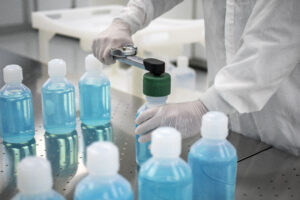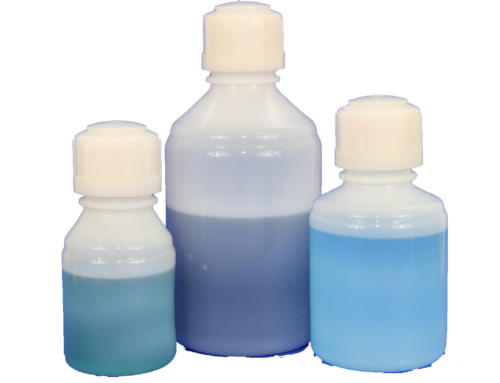Balancing Container Integrity and Closure Torque
Applications like cell therapies and regenerative medicines demand absolute container integrity to ensure product sterility. To that end, bottles, vials, sample jars, and other rigid containers tend to be the natural choice due to their durable construction and strong closure systems.
However, another key factor in the success of rigid containers is closure torque validation. In other words – determining the rotational force needed to securely tighten container closures. Why is this important? Because containers need to also be useable in clinical settings – especially where clinicians have limited dexterity due to wearing multiple glove layers.
Standard laboratory bottles are often used for critical applications, but their closure seals are designed for more general use and aren’t mechanically up to the task. There is also a higher danger of high extractable levels originating from the seal polymers.
We believe our line of fluoropolymer Purillex® bottles are a superior choice for cell therapy processes, as they boast superior, injection-molded closure designs that ensure a better sea – and better protection of contents.
CCIT Validation of Purillex® Bottles
A major biopharmaceutical company recently put our bottles to the test. They conducted a validation study using CCIT (container closure integrity testing) methods to determine the optimal closure torque for Purillex bottles. A major consideration of the study was the removal of closures in surgical suites by clinicians wearing multiple glove layers.
Leak trials using helium mass spectrometry were also conducted to test the bottles’ integrity at five different torque closure values. For all the details about the validation study – and to see the final Purillex bottle closure integrity testing results – please read our full technical note.



